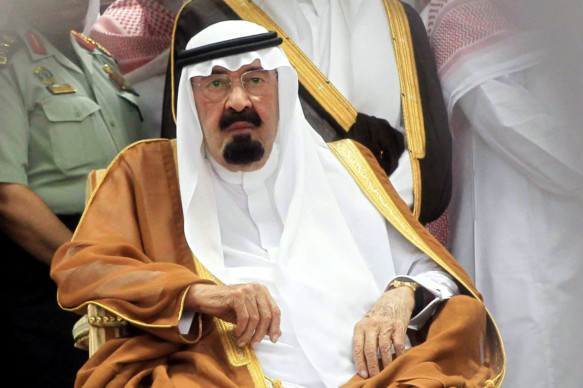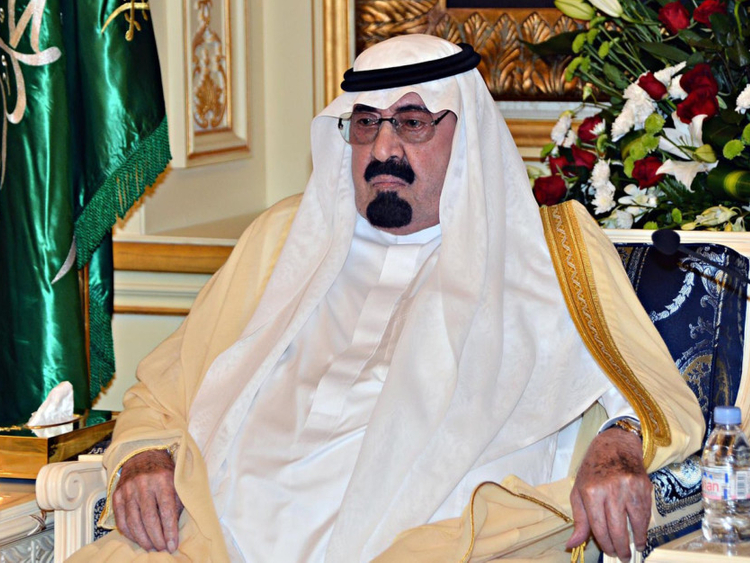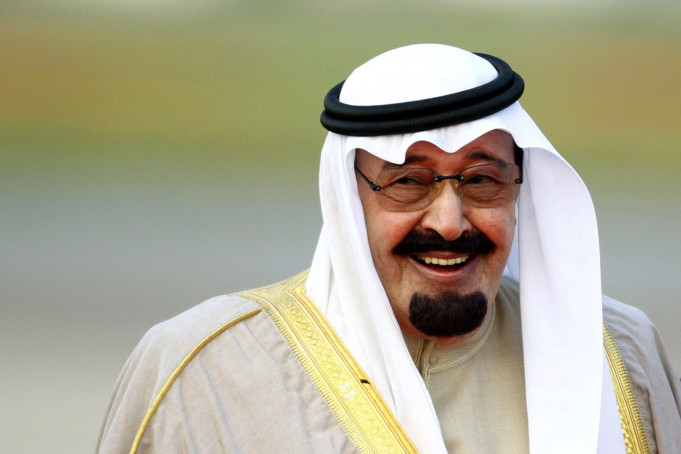
Beirut: King Abdullah Bin Abdul Aziz, the sixth monarch of the Third Kingdom of Saudi Arabia, passed away early on Friday. He was 90.
Abdullah was born on August 1, 1924, and ascended the throne on August 1, 2005. Forbes magazine anointed on the late monarch the title of “the most important man in the Middle East, several years in a row.
Abdullah assumed a variety of key positions throughout his life, starting with the mayorship of Makkah, and, between 1962 and 2010, the command of the National Guard that was based on the original Ikhwan, a group of tribal warriors that formed a significant military force of the Najdi ruler Abdul Aziz Bin Abdul Rahman, who united his people throughout the Arabian Peninsula and restored the Kingdom in 1932.
Over the years, he transformed the Guard into a modern army force to ensure the ruling family’s security, and transferred these responsibilities to his son Mit’ab in 2005 after his accession to rulership.
In addition to this primary role, Abdullah served as deputy defence minister and was named heir apparent when King Fahd Bin Abdul Aziz acceded to the throne in 1982. He was Chairman of the Saudi Supreme Economic Council until 2009, and President of the High Council for Petroleum and Minerals, among his many duties.
After King Fahd suffered a serious stroke in 1995, Abdullah became the de facto ruler until assuming the burden of ruling a decade later and, almost immediately, launched a series of epochal reforms, focusing on a two-pronged strategy: Addressing the roots of the extremism that mesmerised confused followers of Al Qaida through judicial reforms and education, as well weaken the influence of reactionary elements within the ossified religious establishment. Naturally, the ruler confronted serious economic challenges, which he tackled with gusto too. Still, the proverbial straw that broke the camel’s back was the May 2003 terrorist attacks in the kingdom, which led him and senior decision-makers to deal with a slew of growing indigenous political challenges.
Concerned by renewed militancy at home, and anxious to promote more tolerance for religious diversity as well as rein in extremist forces, the heir apparent created the framework for “National Dialogues” that brought leading religious figures — both Sunni and Shiite — together.
An independent political mind, King Abdullah seldom refrained from expressing his outrage at the injustices he witnessed throughout the region and the world. Aghast at Washington’s support for Israel at the height of the Al Aqsa Palestinian Intifada in early 2001, for example, Abdullah refused a George W. Bush invitation in May 2001 to visit the US.
After the 9/11 attacks against the New York World Trade Center and the Pentagon in Washington, the then heir apparent called on Bush to commiserate, and to pledge to do all that was in his powers to fight terrorism. He embarked on two state visits to the United States, in April 2002 and again in April 2005, when the Saudi and the American leaders held frank discussions about bilateral ties and global affairs. The Bush Administration ignored his advice and invaded Iraq, though Riyadh extended full assistance after hostilities were launched and, in its aftermath, Saudi Arabia maintained its reservations towards interminable Iraqi power struggles.
Saudi-American ties were also affected by US policies towards Iran. King Abdullah seldom minced his words and told senior US officers in April 2008 to “cut off the head of the snake,” fearing that Tehran’s nuclear ambitions jeopardised regional security. Moreover, Riyadh rejected Iranian interference in Syria, Lebanon and Palestine, considering such interference to be against Arab interests.
King Abdullah’s mother, Fahda Bint Asi Al Shuraim, was the daughter of Asi Al Shuraim, a member of the powerful Shammar tribal chief hailing from the Al Rashid clan, longtime rivals of the Al Saud. In turn, the late monarch married the daughters of the Al Shalan of Anizah, the Al Fayiz of Bani Sakhr, the Al Jarbah of the Shammar, as well as the Al Jiluwi, the Al Saud’s most important tribal allies. In all, Abdullah married 13 women and fathered seven sons and 15 daughters, including Khalid, a Deputy Commander of the National Guard until 1992; Mit‘ab, the current National Guard Commander; Mesha’al, the Governor of the Najran Province from 2009 to 2013 and now governor of Makkah; Abdul Aziz, a deputy minister of foreign affairs since 2011; Turki Bin Abdullah who serves as governor of Riyadh since May 2014; and Faisal, the head of the Saudi Arabian Red Crescent Society. One of the few Saudi princesses with a semi-public role, the king’s daughter, Adilah — the wife of the Minister of Education Faisal Bin Abdullah — was a renowned advocate of women’s rights in the kingdom. Another daughter Princess Mariam is a physician.














